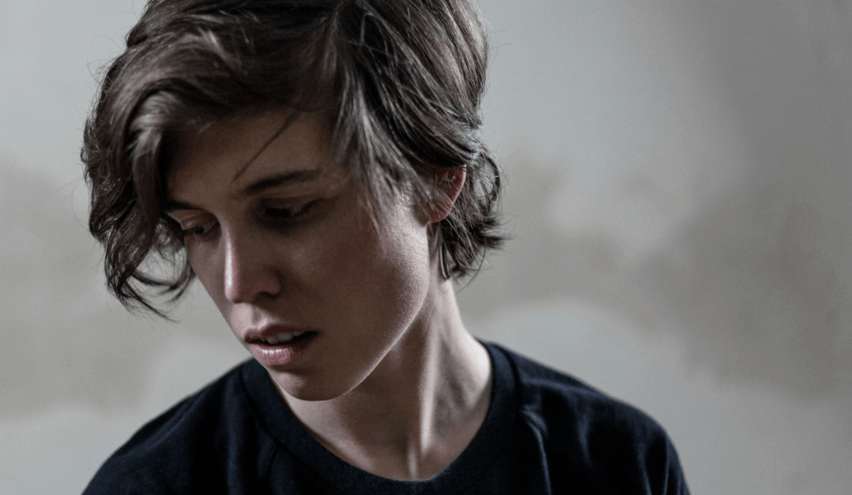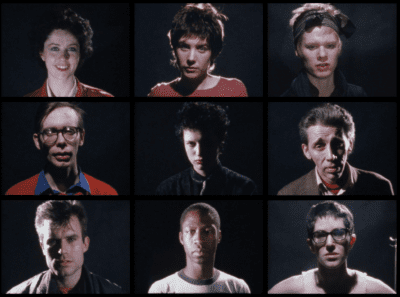A Magic All of Its Own: Talking with Your Friend’s Taryn Miller about Music, Linguistics, and Life
Last year I came across Jekyll/Hyde, an EP by someone called Your Friend and I spent a month blasting it daily, swept up in its epic intimacy, the feeling that a friend had made it for me, real friend, the sort of friend who could withstand a significant amount of physical or emotional on my behalf and for whom I would do the same.
Luckily I didn’t have to wait long before Your Friend, aka Taryn Miller, released her first full-length album, Gumption, recorded in Brooklyn’s own Rare Book Room. Though she’s only twenty-five, Miller’s songwriting has the wisdom and and skill of someone twice her age, and her voice, soaring and vulnerable, has quickly become one of my favorites.
Just before I sent these questions to her, I was visiting Las Vegas to speak at the university, and when the student assigned to fetch me from the hotel mentioned he was from Kansas I immediately brought up Taryn since I knew she lived in Lawrence; it turns out the student, Brett, had made her soy lattes at the cafe where he worked.
Somehow a coincidence like this felt particularly right, as her music has a kind of magic all its own.
We conducted this interview over email while Taryn was on the road.


There’s something so spiritual and open about your songs. Were you raised with any particular religion? Do you think creating and listening to music is a kind of secular spirituality?
That’s really kind of you to say. I wasn’t raised with a particular religion in a rigid way, but I did go to a private Christian school all the way up until fifth grade. If I’m being transparent, it held a bit of a negative connotation for me due to the struggle with my identity and it’s influence on how I felt about myself personally. Music and sound is very spiritual to me, absolutely. I feel very grateful for it, every day. Being on this tour, those thirty or forty five minutes are the most freeing out of my day. The luxury of getting to revisit that at every show is something I really cherish, as well as the energetic dialogue of the people that I play with, and play to.
What makes you happy?
Laughing so hard that it hurts.
You majored in Linguistics and it seems your music career is a sort of side-effect of your life instead of the goal.
I don’t necessarily think it was a side-effect really, but the turn of events wasn’t expected by any means. I entered my college career with the intention of studying music but the sands shifted a lot and I ended up pursuing a degree in Linguistics as a side-effect of that, if you look at it from that perspective. Ultimately, it was a really rewarding subject to explore. Personally, music has been my primary language and my means of communication in an embedded sense.
I’m wondering if you felt your linguistics studies influenced the way you write songs whether there are other non-musical influences on your work?
If there were influences from that then they must have been subconscious. However, it does make me aware of when I’m breaking certain conventions, grammatically and the like. As far as non-musical influences, I would say: the subtleties and and idiosyncrasies of human behavior, literature, film, and many more that I’m missing at the moment.
What are you reading these days?
I tend to be reading several things at once, so that depending on how I’m feeling at the moment, I have options to call upon. In general, I’m really drawn to the art of really powerful collections of short stories. I really admire authors that can say so much, with such brevity.
Did you grow up in a musical household?
In some ways, I wish that I had. Having some sort of formal training is something that I covet. Music was almost always being played around me though, which I don’t think is that unique for most.
What was your childhood like?
The parts that I remember surface in unexpected ways. I think this question might not elicit a response that is entirely representative of those experiences. I will say that I’ve had a lot of pets in my life though.
As you’re just beginning a new tour, how do you handle the switch from your regular life to your tour life?
The most difficult aspect that I’ve found is spending most of the time in the van, while trying to balance things that require access to internet or a printer. I like to keep my days structured in general, and tour hinges on a routine so the transition isn’t that dissimilar in that way. The most important lesson I’ve gained from it is being really adamant about taking care of as much as possible before I leave so that my focus can be on the day-to-day and, of course, playing.
Do you ever long for the road at home or long for home on the road?
A stable environment is what I really long for. If I’m able to establish a form of that in either situation then I’m healthier mentally.
Any theories on why Lawrence, KS produces so much good music?
I don’t have any theories on why music that moves an audience comes from anywhere. Certainly, I think the experiences of those that make it plays a large role in the subject matter, or type of music that gets made. But ultimately, the inspiration that it stems from isn’t geographically locked in my perspective, which makes it inexplicable in a lot of ways and ultimately special.
Your Friend plays the Music Hall of Williamsburg on Wednesday April 13 and Bowery Ballroom Friday April 15.
Photos by Crystal Lee Farris
You might also like 




















